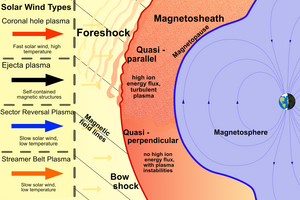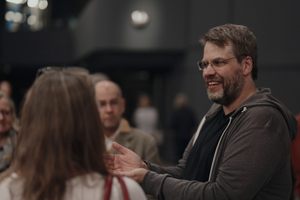High energy particle collisions are at the heart of unveiling the fundamental constituents of matter and the nature of their interactions. The statistical analysis of many collissions, each producing a large numbers of particles, allows to draw conclusions about the underlying particle species and their interaction strengths. This effort has culminated in the Standard Model theory of elementary particle physics, completed by the discovery of the Higgs boson. Astrophysical and cosmological observations, on the other hand, indicate that the Standard Model is not complete, and the search for new physics such as hypothetic dark matter particles continues.
Central to this quest a precise understanding and detailed modeling of the complex dynamics and final states observed in particle collider experiments or similar reactions from high energy neutrinos or cosmic rays penetrating the earth and its atmosphere. This is only possible by means of computer simulations providing a 'virtual reality' version of the experiments which can then be directly compared to measurements to fully harness the discovery power of the fine-grained detectors observing the collisions. Virtually every measurement at CERN's Large Hadron Collider has used such simulations, and no powerful conclusions could have been drawn without them.
My research is centred around particle physics phenomenology, the interface between theory and experiment. I am interested in turning the fundamental rules of a quantum field theory into quantitative predictions which unfold the full complexity such a theory allows for in a high energy collision. This allows experimental observations to use even the smallest fluctuations in multiplicities of observed final states to tell so-called new physics apart from the dynamics of the Standard Model. The calculations and event generator simulations I work on describe the dynamics of a particle collision at all relevant energies: this ranges from the multi-TeV momentum transfer of a short distance interaction down to the MeV scales of the hundreds of observed hadrons, leptons and photons which emerge from the collision.
The method I use is perturbative quantum field theory, together with approximate all-order calculations which describe the energy loss of struck particle through radiation, and phenomenological models where first-principle calculations are not feasible. Monte Carlo methods are vital to not only turn the theoretical approach into an actual simulation, but also due to the complicated structure of the underlying evolution equations which would not admit an analytic solution. The most recent focus of my research has been to overcome the traditional paradigm of event generator simulations which implements quantum mechanical interference only approximately within a semi-classical, probabilistic picture: the new approach I am developing is naturally based on scattering amplitudes rather than cross sections and is rooted in the evolution of a quantum mechanical density operator instead.
I am closely interacting with experimental groups and within international networks of phenomenologists, which is mandatory to validate and apply our results. On the other hand, interactions with related theoretical disciplines of non-perturbative quantum field theory, and research on dark matter at the University of Graz open up completely new perspectives.
Inaugural lecutre:
"Simulations for High Energy Collisions: From models to precision tools."
Wednesday - October 20, 2021
HS 05.12, 15.00 p.m.
I will review the development and theoretical concepts of Monte Carlo event generators, indispensable simulation packages for predictions at high energy colliders. Originally rooted in phenomenological models, these programs and the techniques on which they build, nowadays evolve into precision tools which complement other computational methods in quantum field theory. I will outline how a new paradigm manifestly based on scattering amplitudes helps us to build more reliable simulations for ongoing and future experiments, as well as why and how it deserves to be studied as a new algorithm in its own right.




